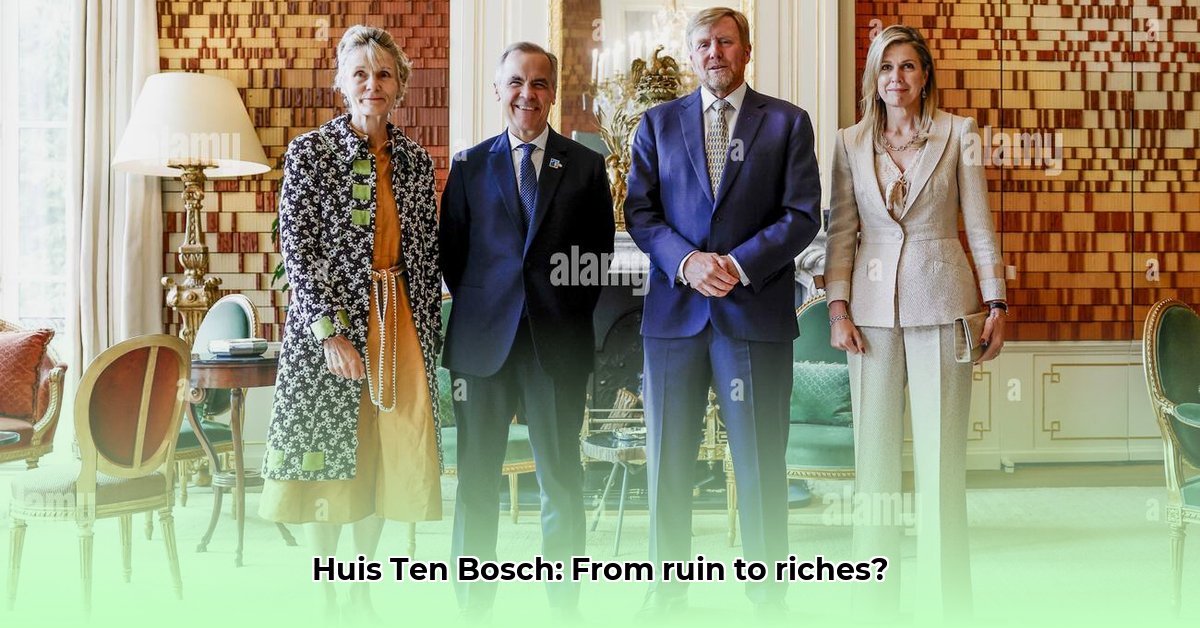
Huis Ten Bosch: A Dutch Dream in Japan, and its Fight for Survival
Imagine a slice of the Netherlands transplanted to Nagasaki, Japan – meticulously crafted canals, windmills, and charming architecture. That's Huis Ten Bosch, a theme park that opened in 1992, riding the wave of Japan's economic boom. Initial investment totalled a staggering 2.1 trillion yen (approximately R350 billion at current exchange rates), a sum reflecting the ambition of creating an authentic Dutch experience. The park quickly became a sensation, attracting 4.25 million visitors annually by 1996. Its success seemed assured, a testament to its unique concept and Japan's booming economy. But this fairytale soon faced a harsh awakening.
The bursting of Japan's economic bubble in the late 1990s brought Huis Ten Bosch's rapid growth to a screeching halt. Visitor numbers plummeted, leaving the park saddled with a crippling debt of 220 billion yen (roughly R36.7 billion). Bankruptcy loomed, threatening to erase this ambitious project entirely. The story of Huis Ten Bosch became a cautionary tale of a venture that outpaced the very economy that supported its creation, highlighting the fragility of even the most meticulously planned projects in the face of economic storms. How could such a detailed and well-executed vision have crumbled so dramatically? This question underscored the challenges, risks, and eventual need for crucial adaptation in large-scale ventures heavily reliant on economic prosperity.
The Turnaround: A Strategic Rebirth
However, the narrative doesn't end in despair. In 2010, H.I.S. Co., Ltd., a major Japanese travel agency, acquired Huis Ten Bosch. This wasn't merely a financial rescue operation; it represented a complete strategic overhaul. H.I.S. injected much-needed capital, but more profoundly, it introduced a new vision, shifting the focus from solely relying on entrance fees to creating a multifaceted entertainment destination. Adding hotels, restaurants, and shops diversified the revenue streams, broadening its appeal and making it more resilient to economic fluctuations.
The recovery wasn't without its obstacles. The global pandemic of 2020-2022 dealt a severe blow to the tourism industry worldwide, testing the park’s newly found resilience. Yet, Huis Ten Bosch persevered. Its unique atmosphere, commitment to genuine detail, and the adept management by H.I.S. gradually rebuilt visitor confidence. This culminated in a significant milestone in 2022: the acquisition of Huis Ten Bosch by PAG, an investment firm, for a substantial 100 billion yen (approximately R16.7 billion). This acquisition represented a clear vote of confidence, signifying not just survival but a remarkable resurgence. The park had not only weathered the storm but had emerged stronger, ready to embrace a new era of growth.
Are there any ongoing challenges that Huis Ten Bosch faces? Yes, certainly. Maintaining this level of success requires continuous adaptation. The tourism industry is dynamic, and the park must accommodate evolving visitor patterns, technological advancements, and economic shifts to sustain its success. The park needs a robust and forward-looking strategy that accounts for potential future challenges.
The Key to Huis Ten Bosch's Success: Adaptability and Strategic Vision
The story of Huis Ten Bosch is a compelling business case study illustrating the importance of adaptability. Its initial success was phenomenal, but its near-collapse served as a critical lesson in risk management and the need for diversified revenue streams. The park’s comeback demonstrates the importance of strong leadership, strategic partnerships, timely adaptation, and the ability to shift focus when facing significant challenges.
Huis Ten Bosch's remarkable transformation can be attributed to the following factors:
- Diversification of revenue streams: Moving beyond ticket sales to include accommodation, dining, and retail significantly reduced reliance on single income sources.
- Strategic partnerships: The acquisition by H.I.S. provided not only capital but also valuable expertise in tourism management and marketing.
- Adaptability to changing market conditions: The park continually evolved by adding new attractions, enhancing existing features, and adapting to changing visitor preferences.
The comeback of Huis Ten Bosch isn't just a story of financial recovery; it's an inspirational tale of resilience, strategic thinking, and the power of adapting to unforeseen circumstances. It serves as proof that even when facing seemingly insurmountable obstacles, a well-executed strategy, coupled with a robust vision and unwavering determination, can lead to extraordinary outcomes. The park’s success should inspire other businesses facing adversity to adapt, innovate, and persevere.